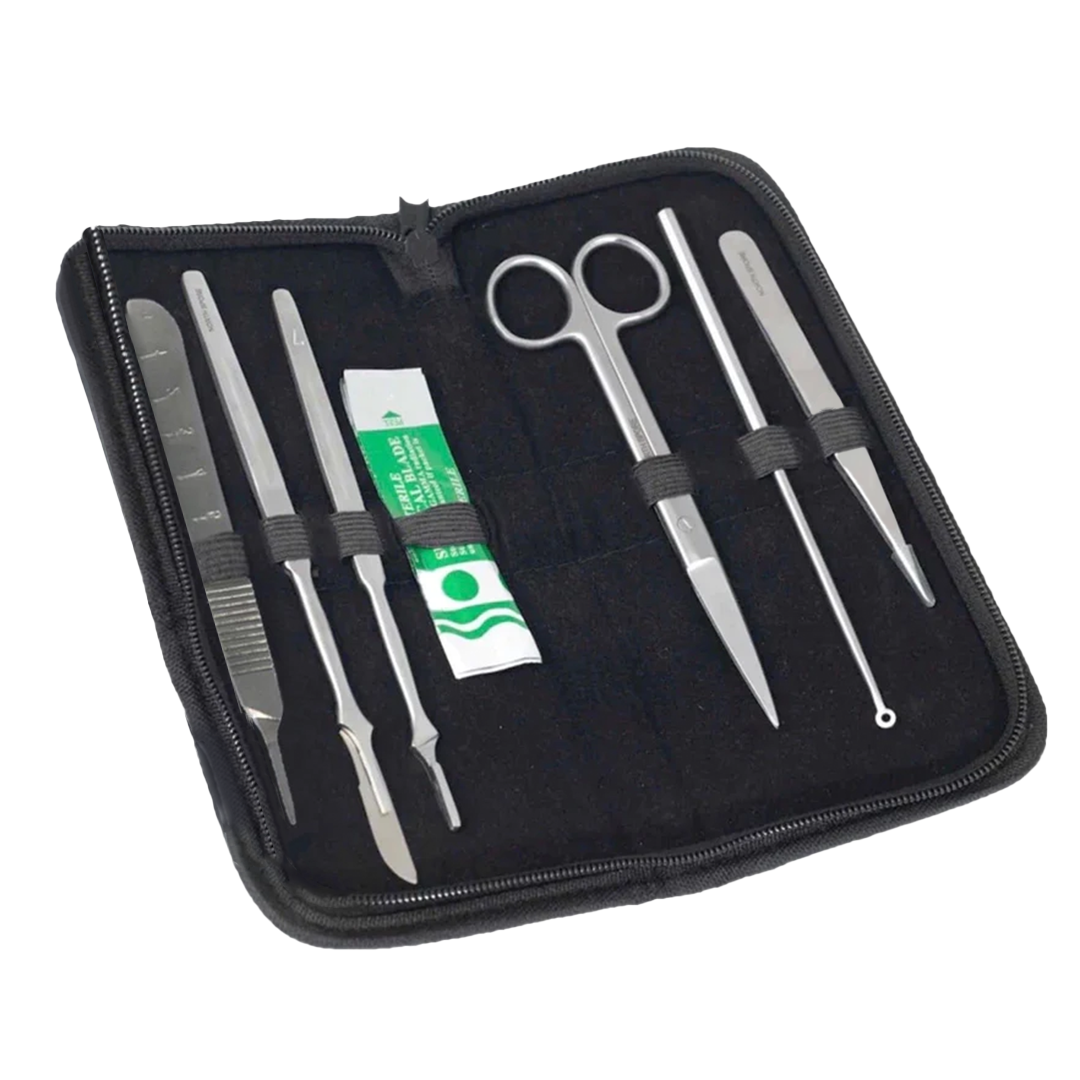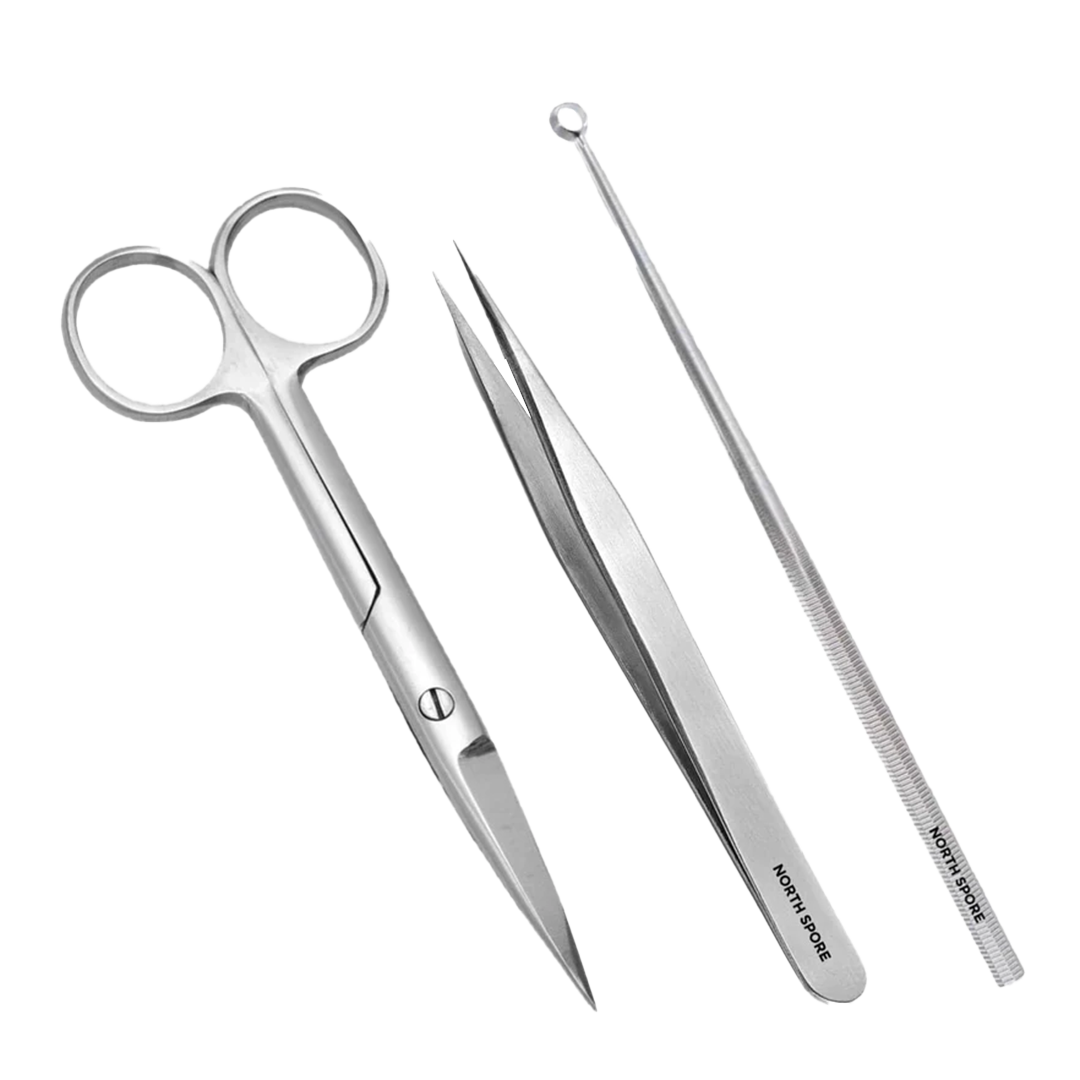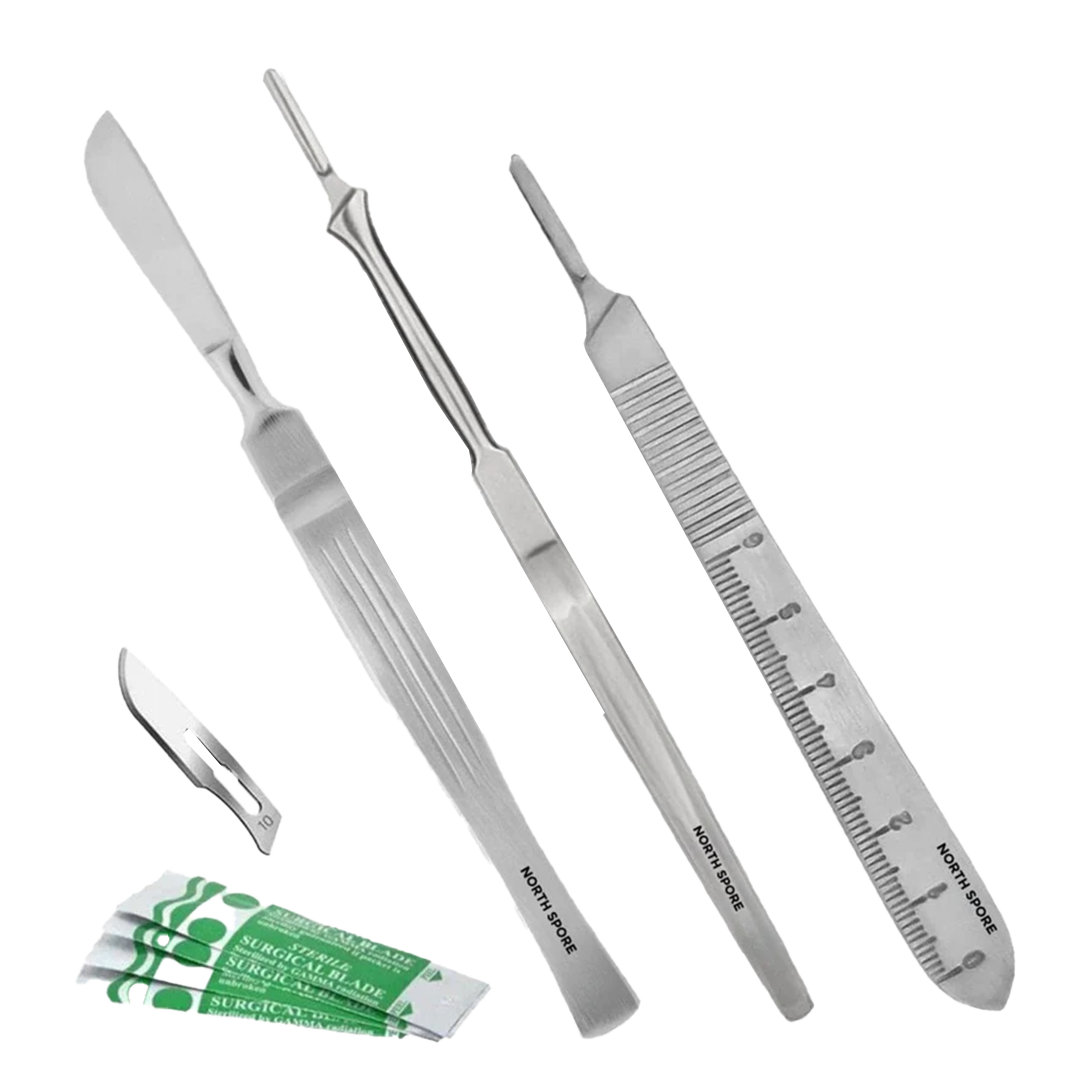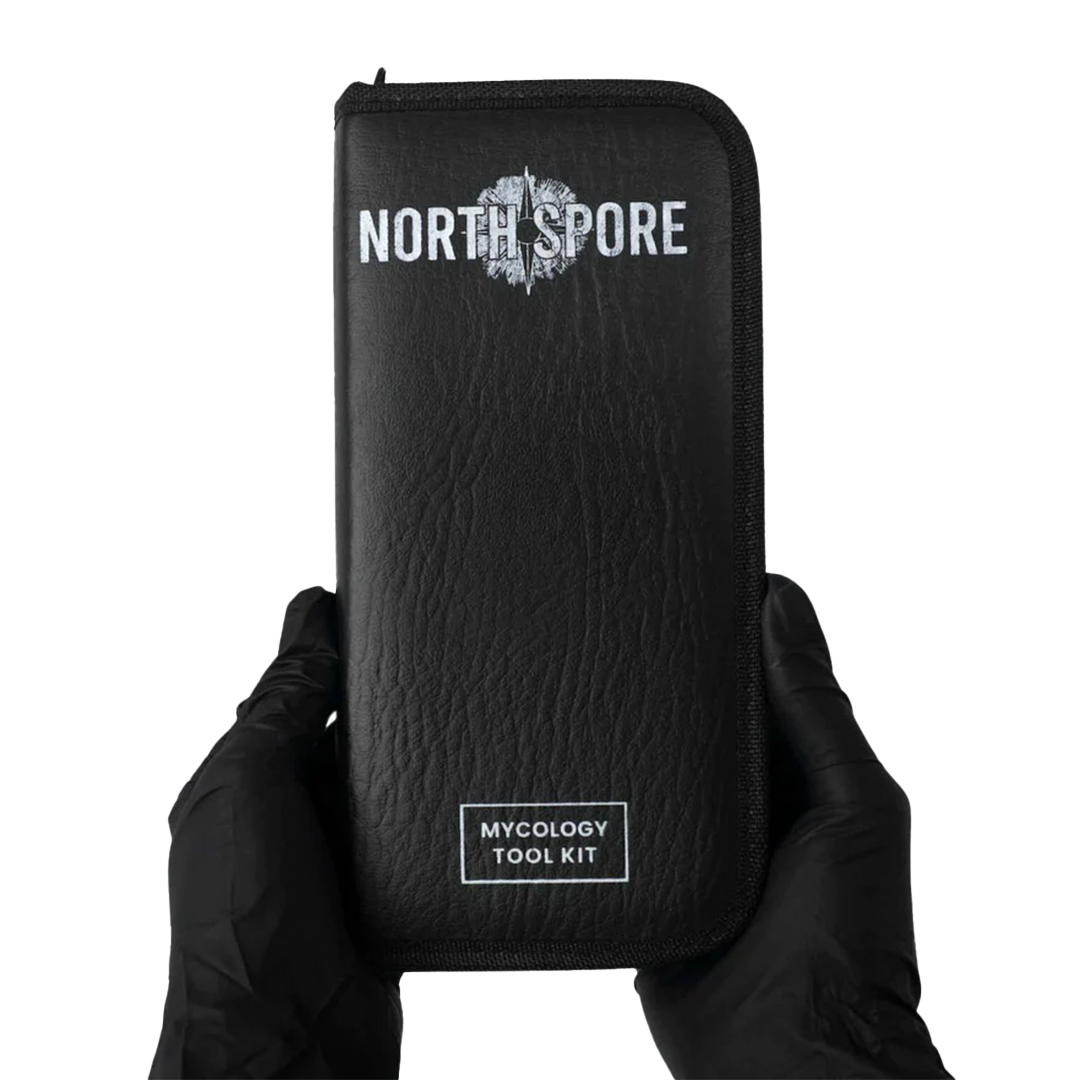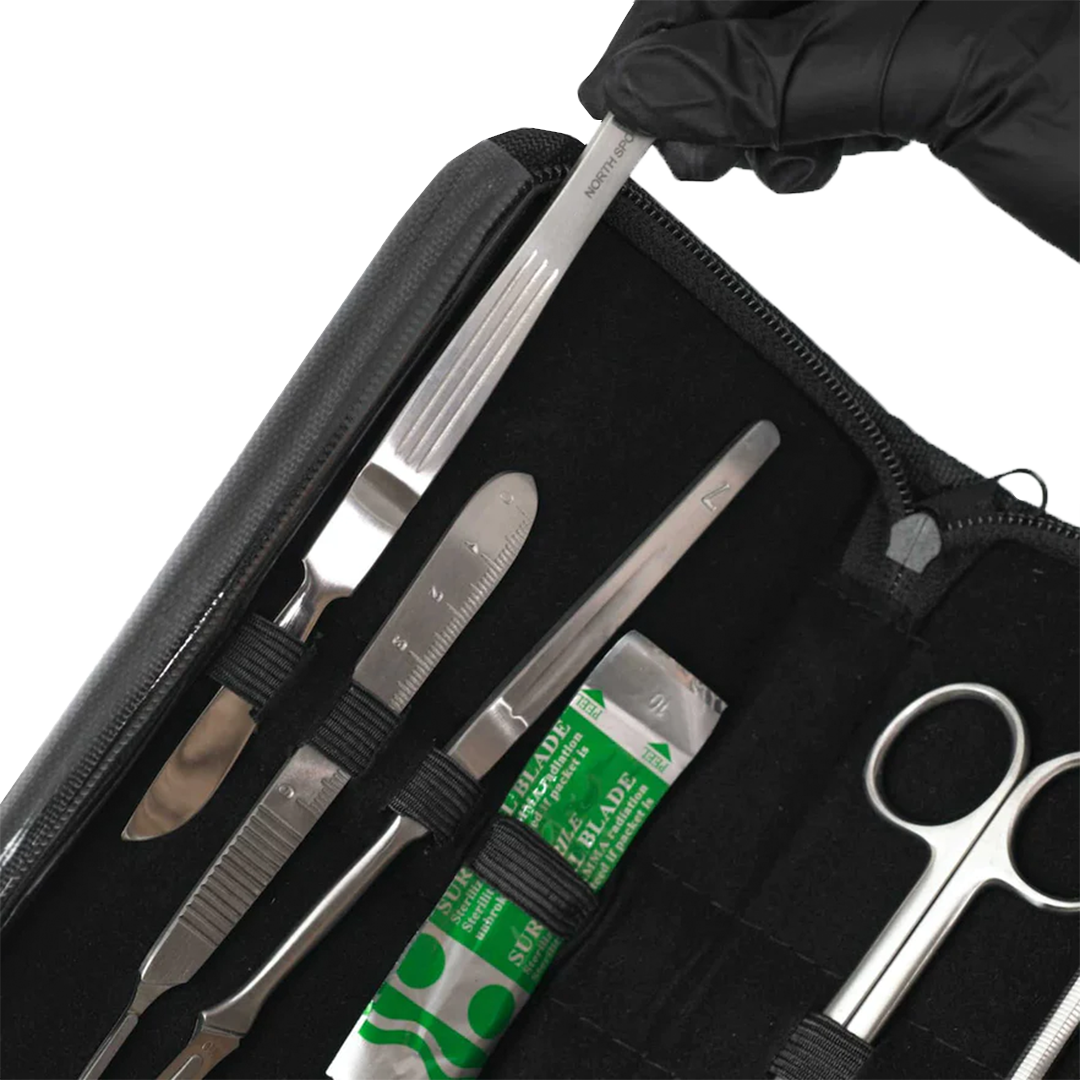Features
- (1) Stainless high-precision needle-nose tweezers
- (1) Stainless straight-blade dissection scissors
- (1) Stainless one-piece scalpel w/ integrated blade
- (1) Stainless inoculation loop
- (1) Stainless grooved scalpel handle #3 w/ metric ruler
- (1) Stainless flat scalpel handle #7
- (4) Stainless #10 sterile scalpel blades
- (1) Zippered carrying case
North Spore Mycology Tool Kit
Your Price:
This mycology lab instrument set lets you do mushroom cloning, culturing and general laboratory work with ease. Each set includes stainless steel tools and extra blades, in a zippered carrying case.
Mushroom cultivation and lab work made easy with North Spore Mycology Tool Kit. Inside the zippered carrying case you will find the essential stainless steel blades and instruments for mushroom cloning, culturing and general lab work.
Observe safety guidelines when using and storing these tools. Clean and sterilize thoroughly between uses.
Technical Specifications
| Length Inches | |
|---|---|
| Width Inches | |
| Height Inches | |
| Product Weight | |
| Case Quantity | |
| Case Dimensions (L"xW"xH") | |
| Case Weight lbs |
| Materials | ||
|---|---|---|
| Thickness | ||
| Tensil Strength | ||
| Climate Suitability | ||
| Transmission Rate | ||
| Diffusion Rate | ||
| Custom Size Option | ||
| Autoclavable |
Yes |
|
| Bag Weight | ||
| Best Use | ||
| Category | Mycology Supplies |
⚠ CUT HAZARD: IMPROPER USE OR CONTACT MAY RESULT IN INJURY.
Always keep blades and sharp edges away from fingers and body. Do not use if blades or sharp edges are dull or otherwise damaged or if the handle is broken or loose. Do not pick up by the blade or sharp edge. When not in use, store in a safe place
Changing your blades
To avoid accidental cuts, ALWAYS use forceps, needle holders, or other engineering controls when changing or manipulating blades. Cuts from scalpel blades are one of the most common sharps injuries in the lab.
Blade disposal
Place used blades in a sharps container and dispose of them according to local guidelines.
Cleaning your instruments
Before sterilizing, clean instruments using the following protocol.
- Rinse off any fluids or tissues with water.
- Manually clean instruments with a soft plastic brush and a pH neutral detergent. (Never use steel wool or wire brushes.)
- Thoroughly dry instruments with a clean towel. (This will minimize the risk of corrosion and water spots.)
WARNING:
- Low pH detergents may break down the stainless protective surface and cause black staining.
- High pH detergents may cause surface deposits of brown stains, which can interfere with the smooth operation of the instrument.
Details
Mushroom cultivation and lab work made easy with North Spore Mycology Tool Kit. Inside the zippered carrying case you will find the essential stainless steel blades and instruments for mushroom cloning, culturing and general lab work.
Observe safety guidelines when using and storing these tools. Clean and sterilize thoroughly between uses.
Usage
⚠ CUT HAZARD: IMPROPER USE OR CONTACT MAY RESULT IN INJURY.
Always keep blades and sharp edges away from fingers and body. Do not use if blades or sharp edges are dull or otherwise damaged or if the handle is broken or loose. Do not pick up by the blade or sharp edge. When not in use, store in a safe place
Changing your blades
To avoid accidental cuts, ALWAYS use forceps, needle holders, or other engineering controls when changing or manipulating blades. Cuts from scalpel blades are one of the most common sharps injuries in the lab.
Blade disposal
Place used blades in a sharps container and dispose of them according to local guidelines.
Cleaning your instruments
Before sterilizing, clean instruments using the following protocol.
- Rinse off any fluids or tissues with water.
- Manually clean instruments with a soft plastic brush and a pH neutral detergent. (Never use steel wool or wire brushes.)
- Thoroughly dry instruments with a clean towel. (This will minimize the risk of corrosion and water spots.)
WARNING:
- Low pH detergents may break down the stainless protective surface and cause black staining.
- High pH detergents may cause surface deposits of brown stains, which can interfere with the smooth operation of the instrument.
